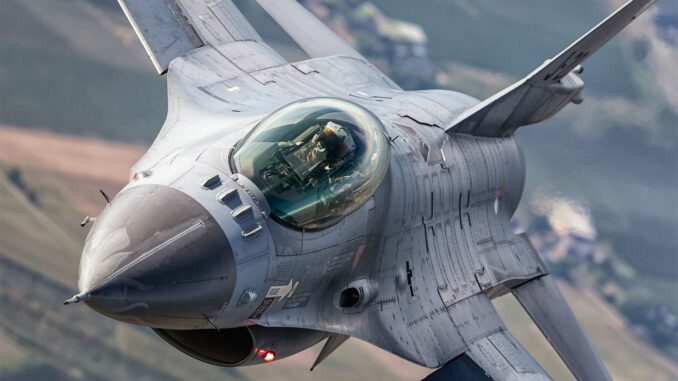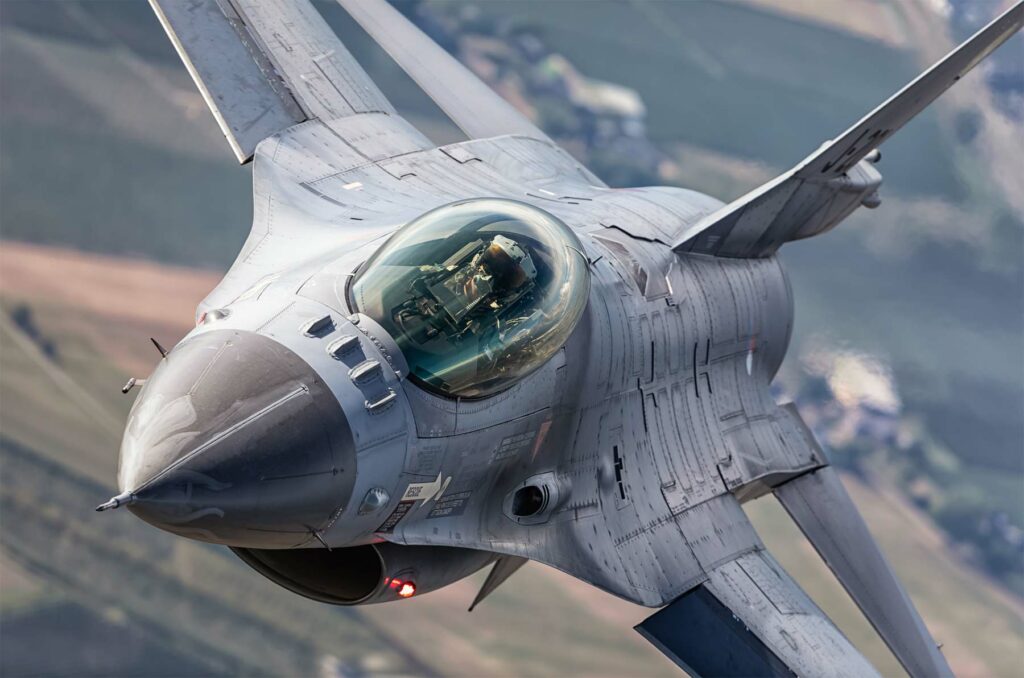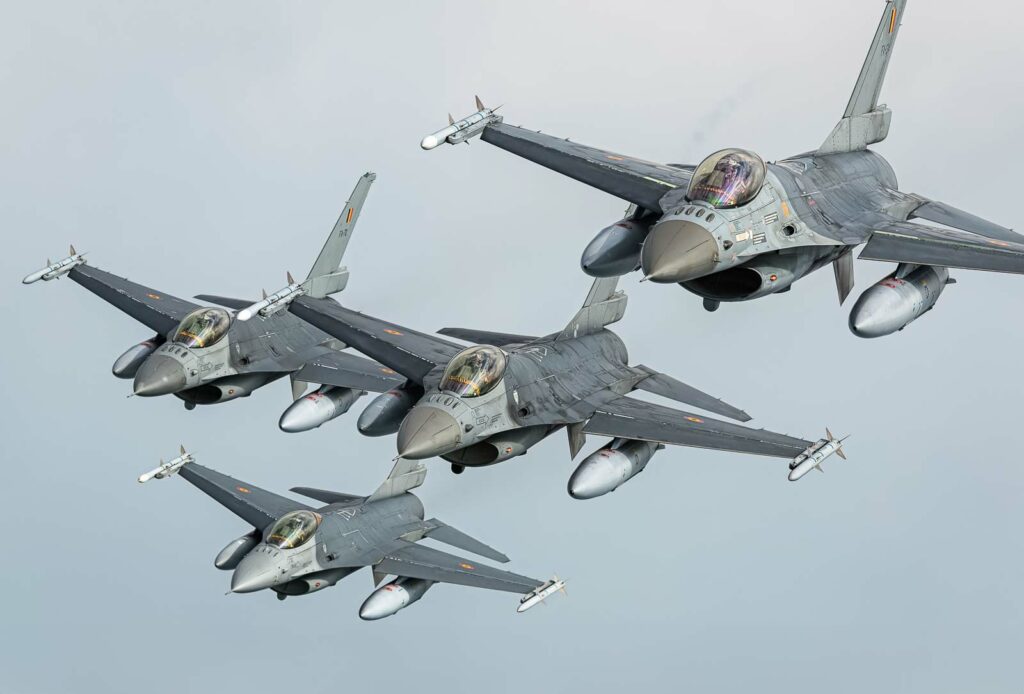
Bulgaria will receive eight of the 16 new F-16 Block 70 fighter jets in 2025, a crucial reinforcement for its air defense and NATO security.
F-16 Block 70 for Bulgaria: an air renewal expected in 2025
Bulgaria is set to receive eight of the 16 new F-16 Block 70 fighter jets it has ordered from the USA by 2025. The announcement was made by Admiral Emil Eftimov, Bulgaria’s Chief of Defense, after a five-day visit to the United States. Originally scheduled to start in 2023, delivery has been delayed by two years due to pandemic-related production problems. Lockheed Martin, the manufacturer, has suffered delays in its production line, but is working hard to make up for lost time.

The F-16 Block 70s represent a significant advance on the aircraft currently in service with the Bulgarian air force, mainly Soviet MiG-29s, whose resources are running out. Bulgaria is facing difficulties in carrying out its air policing missions due to the obsolescence of these aircraft. The delivery of the F-16s is therefore essential for the security of the region and the defense of Bulgarian airspace, especially as Bulgaria is only 200 km from the conflict in Ukraine.
To accommodate the new aircraft, Bulgaria needs to modernize its Graf Ignatievo military airport. In the event of delays, the F-16s will have to be stored in the USA. In addition to the aircraft, 32 Bulgarian pilots will be trained in the U.S. to master the aircraft. After delivery, the Bulgarian Air Force will need at least two years to fully master the use of the new fighters.
Strategic impact of the F-16 arrival in Bulgaria
The introduction of the F-16 Block 70 into the Bulgarian Air Force will have several important strategic consequences. Firstly, it will strengthen Bulgaria’s ability to defend its airspace and contribute more effectively to NATO security, particularly on its eastern flank. The modernization of the Bulgarian air force with these advanced combat aircraft will improve its compatibility and integration with the air forces of other NATO members.
This acquisition is also a sign of Bulgaria’s continuing commitment to NATO and its determination to modernize its armed forces in line with Alliance standards. It testifies to Bulgaria’s confidence in its partnership with the United States, and could encourage other countries in the region to follow a similar path in modernizing their air defenses.
At the same time, Bulgaria is in the process of purchasing new military radars to support the operation of its combat aircraft. Lockheed Martin, manufacturer of the F-16, is considered the favorite in this competition, which also includes four other European companies.
It is important to note that the transition to the F-16 Block 70 will require significant investment in training, maintenance and logistics. Bulgaria will also need to ensure that its ground infrastructure, including airbases and radar systems, is adapted to these new aircraft.

The arrival of the F-16 Block 70 in Bulgaria marks a major step in the modernization of its air force, and reinforces its role in NATO security. This acquisition reflects Bulgaria’s commitment to modern defense standards and increased cooperation with its allies.
War Wings Daily is an independant magazine.